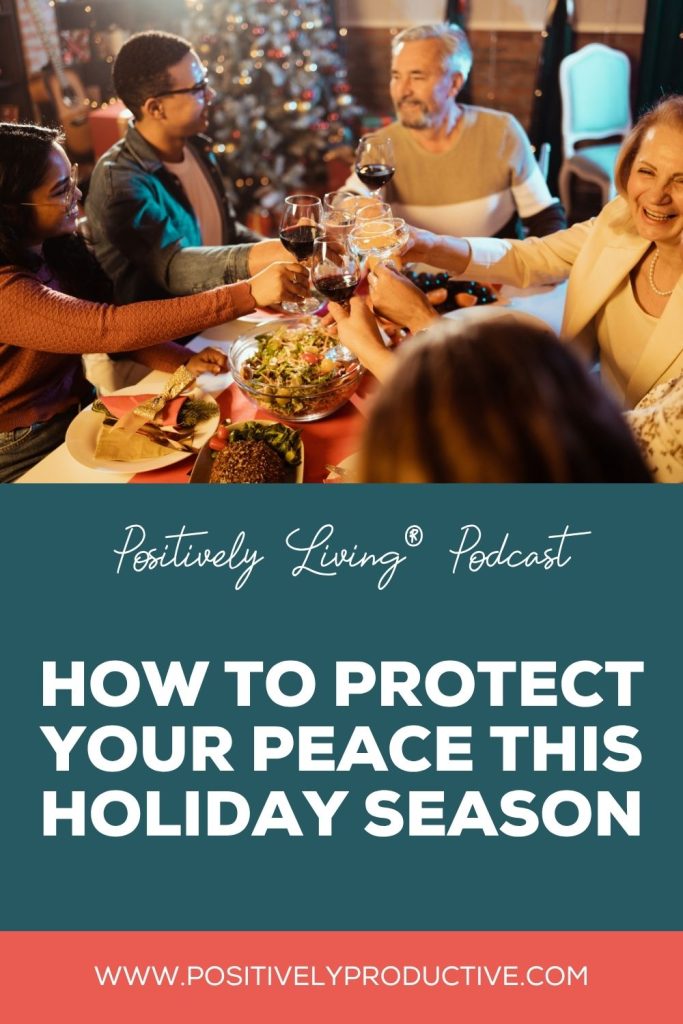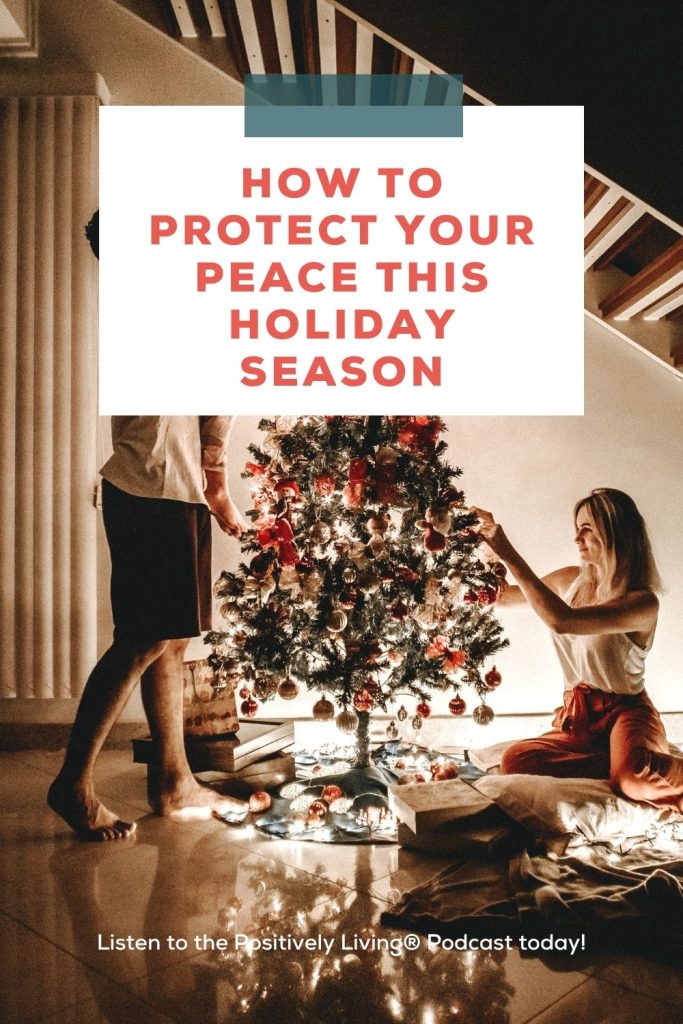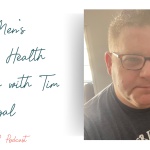Every year, it feels like the holidays sneak up on us. One minute we’re savoring the last bit of fall, and the next, we’re knee-deep in to-do lists, travel plans, and family expectations. We tell ourselves it’s supposed to be “the most wonderful time of the year,” yet for many of us, it’s anything but. It’s the most something, alright: stressful, demanding, and overstimulating.
If you have ever found yourself overwhelmed and exhausted by the holidays, even when they’re filled with good things, you are absolutely not alone. This season brings joy, yes, but also immense pressure and poorly managed expectations. On top of that, it can trigger tender memories and feelings of grief. This mix of demands and complex emotions can leave us depleted well before the festivities end.
The good news is that you can change this pattern. While you can’t control everything that happens around you, you can acknowledge what the stress does to you and take intentional steps to protect your peace. When you do, you’ll find that you not only enjoy the season more, but move through it with more energy, intention, and even better health.
The Truth About Why the Holidays Stress Us Out
Before we can protect our peace, we need to understand what threatens it. Holiday stress isn’t a single culprit; it’s a perfect storm of factors:
1. The Weight of Expectations: The holidays come with this unspoken goal, as promoted by Hallmark and social media. The idealized version says you will entertain friends and family with the perfect dinner, the perfect gifts, in the perfectly decorated home, and everyone will be perfectly behaved. Even though we all realize this version is unattainable, we still measure ourselves against it. When we inevitably fall short, we feel inadequate and stressed.
2. The Energy Drain is Real: As if our lives aren’t busy and demanding enough, the holidays bring more of everything: more social plans, more spending, more cooking, and more cleaning. Worse than the physical labor is the mental labor of keeping track of everything, which adds to the already impossible load carried by most caregivers. Then there is the emotional labor as we try to manage our feelings and “play nice” during all the family visits. While we are adding in so much more, we often get less of what we need, like rest and daylight.
3. Grief and Complex Emotions: The joy of the season is one of the biggest triggers for grief. Maybe a loved one is missing this year, or certain traditions bring up hard memories. Sometimes just being around family can stir emotions we thought we’d already processed. You do not get the benefit of distance during a time when closeness is expected.
When you fail to set limits or manage your energy, this mix can quickly lead to burnout, resentment, and that post-holiday crash where January feels less like a fresh start and more like recovery mode. But it doesn’t have to be this way. When you protect your peace, you show up for what truly matters, enjoy the merriment, and do so without losing yourself or needing major recovery time.
Simple, Practical Steps to Protect Your Peace
While there are many ways to find calm, the following four strategies are practical, compassionate, and truly doable.
1. View Your Plans with the 80/20 Lens
The 80/20 principle (also known as the Pareto Principle) is a way to ensure you get the most joy out of your efforts. Think of it this way: about 20% of what you do brings 80% of your joy. That means the rest is far more optional than you might have thought. It becomes busywork or an unnecessary extra that only drains you.
Look at your calendar, your to-do list, and your gift plans. Ask yourself, “What actually matters most? To me? To my family?” Maybe it is the quiet family dinner, baking cookies with your kids, or that one tradition that always makes you smile. Identify those core elements, and then you can let the rest go, whether for good or at least for this year. The world won’t end if you skip the elaborate card mail-out or say no to the fifth cookie exchange. (For more on this, check out the Positively Living® Podcast Episode 236: Make Your Holiday Season Less Stressful with the 80/20 Principle.)
2. Simplify Giving and Receiving
Gift-giving can be one of the biggest stress points due to the mental pressure and the financial strain. We want to be thoughtful, but it often turns into obligation, pressure, and clutter.
Here is your chance to think intentionally. Not everyone needs to exchange gifts. Suggest to family gatherings that you do gifts for children only, or try a Secret Santa. You can create rules like “handmade or homemade gifts only.” Remember, gifts do not have to be things. They can be experiences, acts of service, or simple tokens of appreciation. Agreeing with friends to go out for lunch together can be your gift of “presence,” which is time together filled with low stress. Keeping things simple benefits everyone.
3. Set and Honor Boundaries
Boundaries protect your energy and your sanity. As Mark Groves says, “Walls keep everybody out. Boundaries teach people where the door is.” You are not denying others or building walls; you are allowing for your needs to be met just as you meet others’. This is a fundamental expression of self-love.
This means you do not have to attend every event or say yes to every request. You can decline with kindness, and you do not owe long explanations. Try phrases like:
- “I’d love to, but I’m keeping things simple this year.”
- “Thanks for thinking of me, but I’ll need to pass this time.”
(If saying no still feels uncomfortable, tune into Positively Living® Podcast Episode 117 on How to Say No Without Feeling Guilty or Rude.)
4. Manage Your Energy, Not Just Your Time
It is easy to overschedule, especially when you are excited. However, true peace comes from protecting your capacity. Ask yourself: How many social events can I actually handle this week? What is realistic? How much time do I need to prepare and recharge?
Be sure to build in buffer days and leave room for transition between activities. Give yourself permission to rest. Even ten quiet minutes for a cup of tea can help reset you for the next thing. Just because you have the time to do it, does not mean it is best for you to add it to your calendar.
BONUS: The Power of Cozy
Did you know that the very thing we love most about the holidays—the “cozy” aspect of it—is also what can help us protect our peace and be most productive? The soft blankets, the warm lights, the comforting smells—these are not indulgences. They are nervous-system regulators. Cozy moments calm your body, lower stress, and actually make you more productive and creative afterward.
So instead of rushing through them, lean in with the knowledge that you are soothing and resetting yourself. Wrap up in that blanket. Light a candle. Put on the soft holiday music. And breathe.
Protecting your peace, in its simplest form, is about finding the harmony between doing what brings you joy and what you feel you need to do, all while doing less of what drains you. It is about being aware of what stresses you, creating boundaries that honor your capacity, and giving yourself permission to do what you need.
Before the holidays get a hold on you, pause and ask yourself:
- “What do I want to experience more of this year?”
- “What could I let go of this year?”
- “What would help me feel calmer and less chaotic?”
The answers may surprise you. Whatever comes up, start there, and let others know. You can’t control the season, but you can control how you approach it. I wish you a calm and cozy season filled with productivity, positivity, and love.











